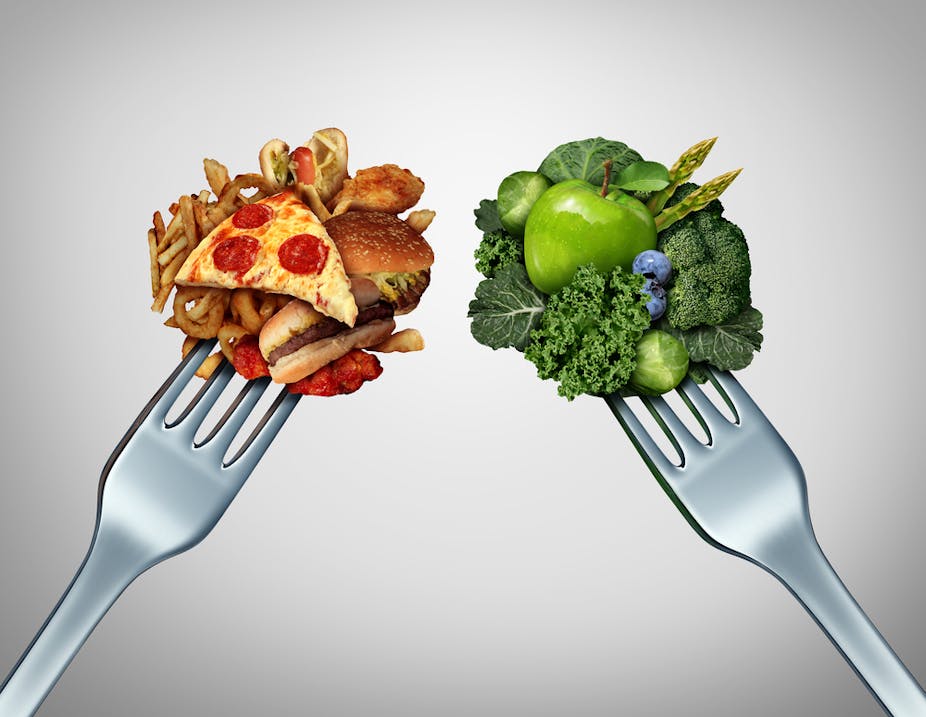Rise by Six: Your Daily Dose of Inspiration
Explore insights and stories that elevate your day.
Ditch the Diet Drama: A Balanced Plate for Every Palate
Tired of diet struggles? Discover how to create the perfect balanced plate for every palate and enjoy food without the fuss!
Understanding Intuitive Eating: How to Trust Your Body's Signals
Understanding Intuitive Eating involves learning to listen to your body and recognize its natural hunger and fullness cues. This approach emphasizes trusting your body's signals rather than adhering to strict dieting rules or external guidelines. Many people struggle with disordered eating patterns that come from years of dieting, which can distort the natural connection between the body and food. By practicing intuitive eating, you can foster a healthier relationship with food and cultivate an awareness of your body's needs, making it easier to enjoy meals without guilt or shame.
Intuitive eating encourages you to pay attention to your internal signals and make food choices based on what your body truly craves. Start by identifying your hunger levels on a scale from zero to ten, where zero is starving and ten is overly full. As you eat, focus on how different foods make you feel, and allow yourself the freedom to indulge in a variety of options. Over time, this practice can help you regain control over your eating habits and promote a balanced lifestyle that aligns with your body's natural rhythms. Remember, the journey to understanding intuitive eating is unique for everyone, so be patient with yourself as you learn to trust your instincts.

5 Deliciously Balanced Meals for Every Dietary Preference
In today's diverse culinary landscape, finding meals that cater to various dietary preferences is essential. Here are 5 deliciously balanced meals that everyone can enjoy, regardless of their dietary needs. Each meal is designed to provide a variety of nutrients while satisfying different tastes.
- Quinoa Salad: Packed with protein and fiber, quinoa serves as the perfect base for a salad. Combine cooked quinoa with diced cucumbers, cherry tomatoes, black beans, and avocado, then toss with a zesty lime dressing.
- Chickpea Curry: This vegan dish is rich in flavor and nutrients. Prepare a creamy curry with chickpeas, coconut milk, spinach, and spices, served over brown rice for a hearty meal.
- Grilled Chicken and Veggies: For those who prefer a meat option, grilled chicken pairs well with seasonal vegetables like bell peppers, zucchini, and asparagus. Marinate the chicken in herbs for extra flavor.
- Stuffed Bell Peppers: Fill bell peppers with a mixture of brown rice, lean ground turkey or plant-based meat, tomatoes, and spices, then bake until tender.
- Vegan Lentil Tacos: A flavorful twist on a classic, these tacos use seasoned lentils as the filling, topped with fresh avocado, cilantro, and a squeeze of lime.
The Myths of Dieting: Why Balance Beats Restriction Every Time
When it comes to dieting, many people fall prey to common myths that promote restrictive eating habits. These beliefs suggest that in order to achieve weight loss or a healthier lifestyle, one must completely eliminate certain food groups or drastically reduce caloric intake. However, this approach often leads to a cycle of deprivation and binge-eating, undermining long-term health goals. Instead, embracing a balanced diet that includes a variety of foods can promote sustainable weight management and emotional satisfaction.
Moreover, balance should be prioritized over restriction, as it enables individuals to enjoy their favorite foods without guilt. Incorporating moderation allows for a more flexible approach to eating, which can foster a healthier relationship with food. For instance, instead of labeling foods as 'good' or 'bad,' individuals can learn to appreciate the nutritional value and pleasure each component brings to their diet. This holistic view encourages a vibrant lifestyle that not only nurtures the body but also supports mental well-being.